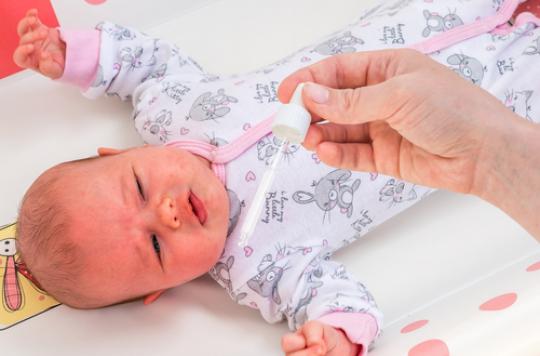The Order of Physicians condemned a practitioner who had prescribed too high a dose of paracetamol to an infant who died a month later.

A fatal dosing error. In Orne, a regulator from Samu prescribed too much paracetamol to a feverish infant. A month after his hospitalization, the baby died. This September 30, the Regional Order of Physicians sanctioned the health professional. He will not be able to practice medicine for a year, including a six-month suspension, and is forced to complete training, according to information from the weekly Point.
“Serious breaches”
If the criminal complaint filed by the parents against the doctor was dismissed, the complaint of the Regional Health Agency to the Regional Council of the Order of Physicians has resulted in a conviction. This one acts several errors on behalf of the general practitioner in question. On the night of May 4 to 5, he was contacted by the Samu regulation service. A six-kilogram infant has a high fever and rapid breathing. The professional recommends that parents administer paracetamol to the child but is hesitant about the dose of oral solution required. He recommends a tablespoon and a half first before recovering. He doses in teaspoons but advises two. An excessive amount for the infant, all the more fragile since it was born prematurely. But the doctor ignores him, his questioning was incomplete.
Hospitalized in the afternoon, the child died at the end of June, reports Point. The Regional Council of the Order of Physicians of Lower Normandy, referred to by the Regional Health Agency, recognizes “serious breaches of the obligations of the medical regulator of the Samu in the development of diagnosis, care and prescription”.
Frequent mistakes
This degree of consequences is rarely observed. Dosage errors, on the other hand, are relatively common in the area of drinkable treatments. Between March 2013 and December 2015, 163 cases of errors were identified by the National Medicines Safety Agency. According to figures obtained by Why actor, 80% of the reports followed administration to the patient. Most often, the latter is a newborn, infant or child (70%).
If parents or relatives are involved in most of the incidents reported to the ANSM, the doctors are no stranger to it. A health professional is responsible for the error in a quarter of the cases. As in the Orne, the graduations come into question. The use of unsuitable dosing tools is regularly reported. The ANSM recommends, for prevention, to keep pipettes and other devices in the original packaging.
.

















